Post-Traumatic Stress Disorder (PTSD) is more than just a phrase; it’s a reality for millions who have experienced life-altering trauma. Understanding PTSD is the first step towards empowerment. How can we best support those on this challenging journey? This guide aims to provide comprehensive strategies for coping with PTSD, acknowledging the complexity of the condition and the resilience of those who face it.
Understanding PTSD
PTSD is a mental health condition triggered by experiencing or witnessing a traumatic event. Symptoms can include flashbacks, nightmares, severe anxiety, and uncontrollable thoughts about the event. It’s not just about feeling stressed; it’s about reliving trauma. What causes PTSD? It can stem from various events like military combat, natural disasters, serious accidents, or personal assaults. The impact of PTSD extends beyond the individual, affecting relationships, work, and overall quality of life. It’s a ripple effect that touches every aspect of existence
Traditional Approaches to Managing PTSD
- Psychotherapy: Psychotherapy, or talk therapy, is a cornerstone in PTSD treatment. Cognitive Behavioral Therapy (CBT) and Eye Movement Desensitization and Reprocessing (EMDR) are particularly effective. CBT helps patients understand and change their thought patterns, while EMDR focuses on processing and integrating traumatic memories.
- Medications: Medications, often antidepressants, can help manage symptoms of PTSD. They can reduce symptoms like anxiety and improve sleep. Medication is often more effective when combined with psychotherapy.
- Support Groups: Support groups provide a space for sharing experiences and learning from others who understand. They foster a sense of community and understanding, essential in the healing process.
Lifestyle Adjustments for Coping with PTSD
Creating a structured environment is pivotal for those battling PTSD. It’s about cultivating a sense of predictability and control in daily life. Exercise plays a crucial role here. Engaging in physical activities, whether it’s a brisk walk, a yoga session, or a more intense workout, can significantly alleviate symptoms of PTSD. Exercise releases endorphins, natural mood lifters, which combat stress and anxiety. It’s not just about staying fit; it’s about nurturing mental health.
Mindfulness and relaxation techniques are equally vital. Practices like meditation and yoga help in grounding oneself, providing a mental space to process and manage stress. These practices can be integrated into daily routines in simple ways. Starting the day with a few minutes of meditation or ending it with a gentle yoga session can make a significant difference. The key is consistency and finding what works best for the individual. How can these practices be adapted to fit into various lifestyles and schedules, ensuring they become a sustainable part of daily life?
Medical Marijuana and PTSD
Medical marijuana has gained attention as a potential aid in managing PTSD, particularly for symptoms like anxiety, insomnia, and flashbacks. In Maryland, where marijuana is legal for recreational use, the advantages of a Maryland medical marijuana card are significant. The card ensures access to cannabis products specifically designed for medical use, which can differ greatly from recreational varieties. It guarantees that the products used are of the highest quality and suitable for therapeutic purposes.
Another critical aspect of the card is the guidance on proper dosage and usage. This is particularly important for PTSD patients who may be sensitive to the effects of THC and other cannabinoids found in marijuana. With a medical card, patients receive professional medical advice tailored to their specific needs and conditions. This ensures a safer and more effective use of marijuana as part of their overall treatment plan. The process to obtain the card involves a certification from a registered provider, which adds an additional layer of safety and oversight to the patient’s treatment plan
Alternative Therapies and PTSD
Beyond conventional treatments, alternative therapies offer additional avenues for healing. Acupuncture, for instance, has shown promise in reducing symptoms of stress and anxiety in PTSD sufferers. It works by targeting specific points in the body to release tension and promote relaxation. Art therapy, on the other hand, offers a creative outlet for expressing emotions and processing traumatic experiences. Through painting, drawing, or sculpting, individuals can explore their feelings and thoughts in a safe and therapeutic environment.
When considering alternative therapies, it’s essential to evaluate their compatibility with existing treatments. Consulting with healthcare providers can provide insights into which therapies might be most beneficial and how to integrate them into the overall treatment plan. Patients should also consider their personal preferences and comfort levels with these therapies. What are the available options, and how can individuals assess which therapy aligns best with their needs and lifestyle?
Building a Support System
A robust support system is a cornerstone of effective PTSD management. It’s not merely about having people around; it’s about nurturing relationships with those who offer understanding, empathy, and support. This system can include friends, family, healthcare providers, therapists, or counselors. They provide a safety net, offering emotional support and practical assistance when needed.
Building such a network involves openness and communication. It might mean joining support groups where shared experiences create bonds of understanding. It could also involve educating close friends and family about PTSD and how they can offer support. Regular check-ins with healthcare providers and therapists are crucial for monitoring progress and addressing any challenges. How can individuals actively seek and maintain these supportive relationships, ensuring they have a solid network to rely on during their recovery journey?
Moving Forward: Developing Resilience
Resilience is the bedrock of overcoming PTSD. It involves learning and applying coping strategies, embracing self-care, and acknowledging personal progress. Developing resilience doesn’t happen overnight; it’s a gradual process, often marked by setbacks and victories. Celebrating small achievements can be incredibly motivating. It could be as simple as acknowledging a day without flashbacks or recognizing the ability to stay calm in a stressful situation.
Practicing self-care is essential. This means prioritizing activities that bring joy and relaxation, whether it’s a hobby, spending time in nature, or just taking time to rest. Recognizing and accepting that recovery is a non-linear journey marked by ups and downs is crucial. How can individuals embrace this journey, acknowledging their strengths and vulnerabilities, while maintaining hope and perseverance through the challenging times?
Conclusion
Coping with PTSD is a complex journey that involves various strategies and supports. From traditional treatments to lifestyle adjustments and the potential use of medical marijuana, each aspect plays a role in the broader picture of healing and recovery. Remember, overcoming PTSD is not about erasing memories; it’s about learning to live with them, gaining strength, and moving forward.








